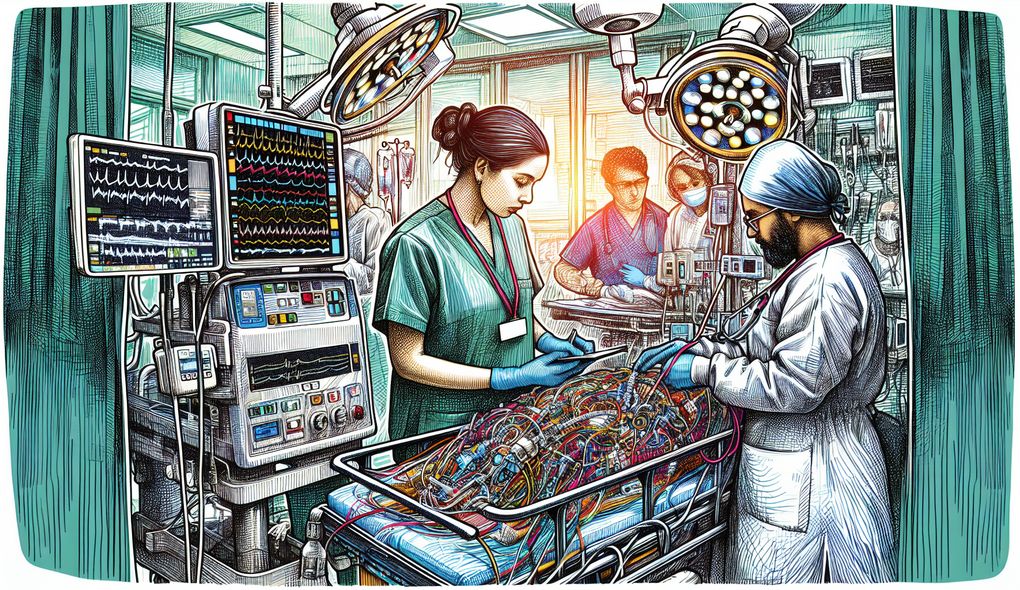Describe a time when you had to advocate for a patient's needs or wishes in the ICU.
JUNIOR LEVEL

Sample answer to the question:
One time in the ICU, I had a patient who was very anxious and scared due to their critical condition. They were hesitant to undergo a necessary procedure because of their fear. I took the time to sit with the patient, listen to their concerns, and empathize with their emotions. I explained the importance of the procedure in improving their condition and assured them that our team would be there to support them throughout the process. I also involved their family in the conversation to help alleviate their concerns. By advocating for the patient's needs and wishes, I was able to address their fears and gain their trust, ultimately leading to a successful procedure and improved patient outcomes.
Here is a more solid answer:
During my time in the ICU, I encountered a patient who needed urgent intubation to support their respiratory function. However, the patient was highly anxious and expressed a strong desire to avoid intubation. Recognizing the importance of ensuring the patient's comfort and understanding, I approached the situation using a multidisciplinary approach. I collaborated with the patient's family, respiratory therapists, and the interdisciplinary care team to develop an individualized plan. We implemented strategies such as providing thorough explanations, administering anxiety-reducing medications, and utilizing non-invasive methods initially. Through active listening, empathy, and effective communication, I helped the patient understand the necessity of intubation for their overall well-being. By advocating for the patient's needs and wishes, we were able to alleviate their concerns, establish trust, and ensure timely and appropriate care.
Why is this a more solid answer?
The solid answer includes specific details about the critical care procedure (intubation) and how the candidate demonstrated strong clinical skills, ability to work effectively in a multidisciplinary team, excellent decision-making and problem-solving skills, strong communication skills, and high emotional intelligence. The answer also highlights the candidate's dedication to continued medical education and professional development. However, it could be further improved by providing more specific examples of how the candidate utilized their skills and qualities in advocating for the patient.
An example of a exceptional answer:
In the ICU, I encountered a critically ill patient who had complex medical issues requiring multiple interventions. The patient's family strongly advocated for alternative treatment approaches that were not aligned with the established evidence-based guidelines. Recognizing the importance of patient autonomy and shared decision-making, I proactively engaged in open and respectful conversations with the family. I carefully explained the risks and benefits of the recommended interventions, the potential consequences of deviating from the standard care, and listened attentively to their concerns. To address their wishes, I initiated discussions with the interdisciplinary team to explore potential modifications in the treatment plan while ensuring patient safety. Through ongoing education, transparent discussions, and a collaborative approach, I was able to gain their trust and establish a shared decision-making process. This allowed us to accommodate their preferences within the confines of evidence-based medicine, resulting in a positive outcome for the patient and their family.
Why is this an exceptional answer?
The exceptional answer describes a complex situation in the ICU where the candidate had to advocate for a patient's needs and wishes in the face of conflicting treatment approaches suggested by the family. The answer demonstrates the candidate's ability to utilize their clinical skills and knowledge to navigate challenging situations, work effectively in a multidisciplinary team, make difficult decisions based on evidence-based medicine, communicate complex information to patients and families, and exhibit high emotional intelligence in dealing with end-of-life care. The candidate's dedication to continued medical education and professional development is also evident in their approach. The answer provides a detailed and well-rounded response, showcasing the candidate's exceptional abilities in advocating for patients.
How to prepare for this question:
- Familiarize yourself with evidence-based guidelines and current best practices in critical care medicine. Stay updated on the latest advancements in the field.
- Develop strong communication skills to effectively convey complex information to patients and their families. Practice active listening and empathy.
- Hone your problem-solving and decision-making skills by participating in case studies, simulations, and critical care conferences.
- Enhance your emotional intelligence by developing self-awareness, empathy, and resilience. Seek opportunities to engage in end-of-life care discussions.
- Engage in continuous medical education to stay well-informed about advancements in critical care procedures and techniques.
- Gain experience in working collaboratively with multidisciplinary teams, such as through shadowing experiences or collaborative projects.
- Reflect on past experiences where you successfully advocated for patients' needs or wishes and be prepared to discuss them in detail during the interview.
What are interviewers evaluating with this question?
- Strong clinical skills and knowledge of critical care procedures.
- Ability to work effectively in a multidisciplinary team.
- Excellent decision-making and problem-solving skills.
- Strong communication skills with the ability to convey complex information to patients and their families.
- High emotional intelligence to cope with severe illness and end-of-life care.
- Dedication to continued medical education and professional development.

